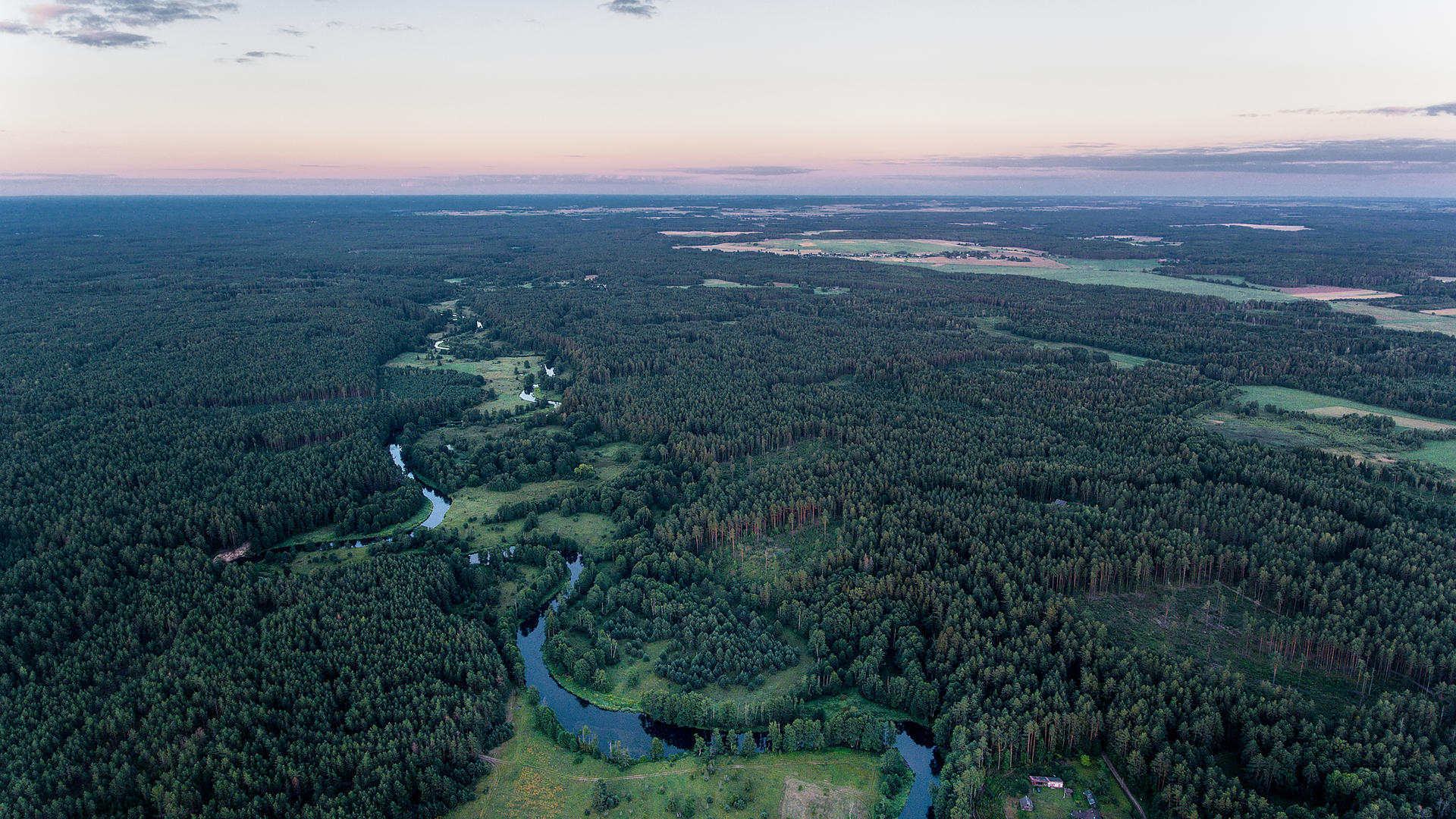
The length of the route that runs through Lazdijai and Varena districts, is 200 km. In order to visit all places and take pleasure in South Dzukija, the recommended duration of the route is the entire day.
The route “The Berries of South Dzukija” invites visitors to get acquainted with Dzukija culinary heritage. Producers of traditional dishes in Kapiniskes offer to take part in the “Dishes of Dzukija tasting and education” and to learn the most popular dishes of Dzukija.
Buns and svilpikai are baked in the village of Sestokai.
After a half-hour trip, towards to Meteliai village you will see how the fish is caught and smoked.
The simple leavened bread is already baked by the third generation in Kapciamiestis. Manufacturers are convinced that the taste is still the same - like of the antecedents.
Due to unpolluted soil in Dzukija buckwheat is widespread. They felt the blade and saw the mill... Such deep traditions lead the South Dzukija route through the surroundings of Varena. There are two educational programs in Pamerkiai village: “Potato buns of Dzukija” and “Buckwheat Way from sowing to lunch”.
Recipes for Dzukija dishes are transmitted from generation to generation in Sestokai areas. In order to preserve the culinary heritage in the Lazdijai region, the producer has certified the buns of Dzukija, svilpikai and buckwheat babka. A strong sense of nationality promotes the continuity of traditional culinary cuisine for later generations.
The fish was smoked in Meteliai village long ago due to the nearby lakes of Dusia, Metelis and Obelija. The producer’s grandfather was a former fisherman and his wife was once the best smoker of the fish, thanks to which today’s fish taste is unchanged due to the knowledge given to grandchildren. Vendace can be fished in Dusia lake and every spring migrating eel, flooded in streams flowing from Metelis Lake, is smoked using alder wood.
Certified culinary heritage dishes producer in Kapciamiestis produces simple leavened rye bread, Buckwheat baba (babka) of Dzukija, Buns of Dzukija, Potato Snaps (Švilpikai) according to mom`s recipes from old prescription books.
From ancient times an amazingly fragrant and delicious buckwheat pie from buckwheat flour has been baked. Residents of Dzukija living in sandy lands – pieskiniai often ate this delicious dish. It’s an easy-to-cook dish.
„TASTING OF DISHES OF DZUKIJA AND EDUCATIONAL TRAINING“
(potato bun, buckwheat babka, buckwheat pancakes, mushroom soup, salted flitch of bacon)
Activities: getting acquainted with dishes of Dzukija, their history, preparation of dishes (potato peeling, grating), kneading of dough, baking, tasting.
Duration: 2 hours
Languages: Lithuanian, Russian, Polish.
Seasonality: all year round.
More about the object you will find in project implementer website.
The most important thing in Dzukija has always been, is and will be buckwheat. Only here you can find a buckwheat flour cake - the elderly women in Dzukija call it babka. Pamerkiai village is surrounded by mysteries of centennial culinary of Dzukija women - not only babka, but also potato buns and buckwheat pancakes are baked in a country house oven. These certified culinary heritage dishes have gone a long way until they appeared on the table.
EDUCATIONAL PROGRAMS: ”Potato buns of Dzukija“ and ”Buckwheat path from sowing to lunch“
Activities: listening to the stories about buckwheat, buckwheat babka and tea tasting. If spring – buckwheat seeding, if autumn - cutting. Then threshing, binding, grinding of grain, sifting of flour, kneading of buckwheat dough, baking, tasting.
Preparation of potato buns. Potatoes peeling, grating, forming a bun, putting into the oven. Tasting.
Duration of training up to 2-4 hours (depending on the size of the group).
Languages: Lithuania, Russian, German.
Seasonality: all year round.
More about the object you will find in project implementer website.